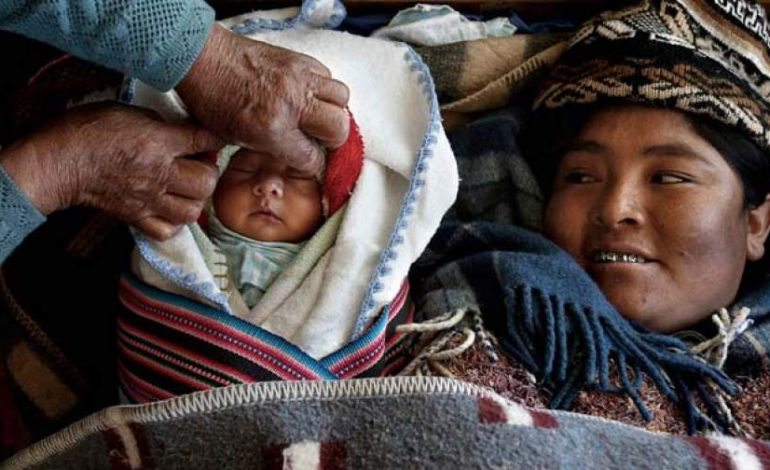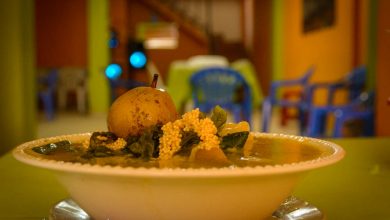
Within Andean thought, childbirth is considered an ancestral ritual where the midwife interacts. The midwife is a woman who is responsible for assisting a baby in the world. She is a fundamental part of childbirth along with the mother and baby.
When a woman is in the last month of pregnancy, the couple tells the community midwife to prepare to assist in the birth of their child. They have knowledge that they have acquired over many years, even from when they were small and helped their mothers attend births. It is possible for them to touch the womb and know the sex of the baby.
When the indicated day arrives, the first thing the midwife does is clean and set the place where the child will be born. She has a bed brought and cleans it with bushes. She lights the stove making fire to warm the ambience. She also lights incense for good vibes,. When the place is already at a suitable temperature, she send the pregnant woman to start with the rituals of childbirth.
First, they entrust it all to the supreme beings, without forgetting the creator God or his Andean gods, like the moon, the earth, the Apus etc. Then the midwife proceeds to see how the woman’s dilation goes. If it does not increase, they practice the egg ritual, which consists of passing a chicken’s egg over the woman’s belly as if cleansing her. Then this egg goes in the fire and if the egg sweats before bursting, it means that the woman is not dilating due to cold. But if the egg bursts without sweating and fast, it means that the mother is about to give birth .
If the belly of the mother is cold, the midwife prepares hot drinks with natural herbs such as paico, avocado seed, cinnamon, cherimoya, which will help to warm the belly and help the new mother dilate dilate faster. These herbs are easy to get in the markets.

Sometimes labor is easy and sometimes it gets complicated. For this reason the midwives prefer to have the mothers position themselves in “knives” or on their knees to facilitate labor. When there is a lot of pain and the woman needs to push harder, the midwives put in the mouth of the mother a wooden spoon so that the push is stronger and the baby is born.
When the baby is born, the midwife takes it in her hands and, before cutting the umbilical cord that unites him to his mother, she gives the child the words of welcome, blesses him in the name of the Lord, introduces him to his mother and says, “in this house is where you will live, here you will grow with a lot of love, here you will have a family, here you will eat, you will always be with your family, you will love them, when you grow up you will have your partner and live in this community”. It is believed if these words are not given the child will feel rejected by the family, also that with these words the child is achieved when he grows up he loves his family, his community, and lives in it without wanting to go elsewhere.
After these words the umbilical cord is cut and tied. In a few days, this piece of cord will fall off and it is a tradition that the father or mother keep it because it represents luck.

After all this the midwife attends to the mother, checks that the placenta has left, and then places it in a blanket on the floor, hitting it saying the words, “you will not be spoiled, you will be obedient with your parents, you will not be idle, you will serve your family and the community, and you will not forget the land where you were born.” Although it may seem a lie, with these words the child is a good son, worker, and is loving with his family. This placenta is buried next to the stove so that the child remembers where he was born.
After the birth, the mother is bathed with ancestral herbs with healing powers capable of returning the body to its normal state. Then she is bound so that her bones return to the same as before and the midwife gives the recommendations what she should take and eat in the following days of your recovery.
It is important that this wisdom is not lost, because the grandmothers inherited the knowledge of how birth should be in the heat of the home and even more in communities, where many times you do not have access to hospitals.
Photo reference




